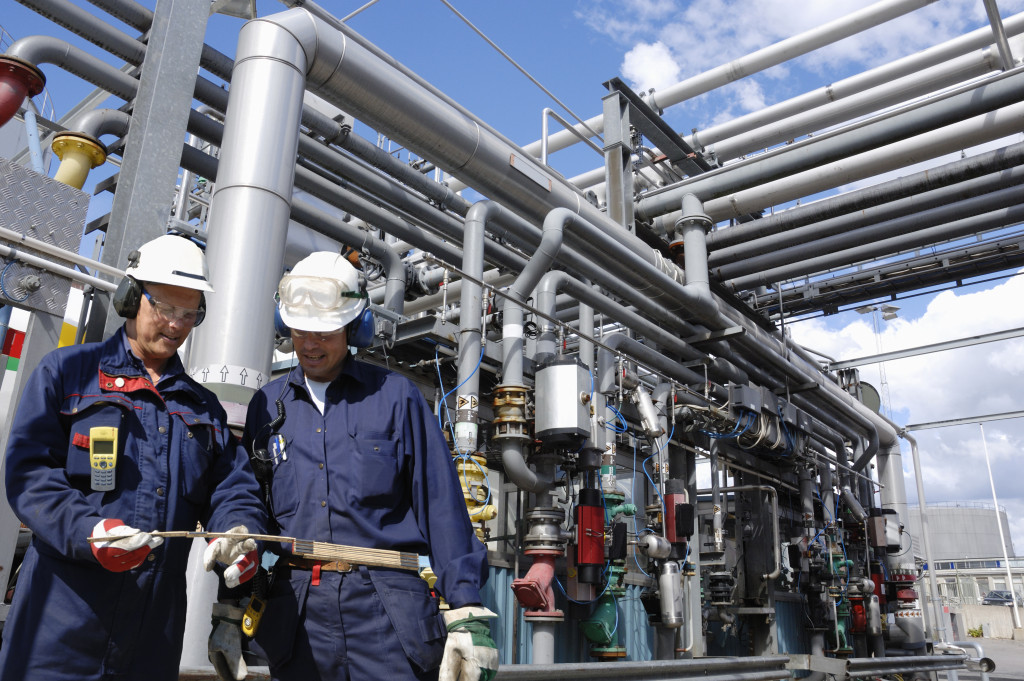- Implementing safety measures and comfortable conditions in factories improves worker productivity and morale.
- Regular safety training, personal protective equipment, and inspections are vital to reducing workplace injuries.
- Maintaining comfort involves controlling temperature, ensuring ventilation, reducing noise, and providing ergonomic equipment.
- Providing essentials like water, nutritious food, and other necessary supplies greatly enhances a worker’s performance and well-being.
Working in an industrial factory can pose significant health and safety risks to workers. Factory work often involves exposure to hazardous materials, heavy machinery, and strenuous physical labor, which can lead to a high incidence of accidents and injuries. According to the Bureau of Labor Statistics, there were approximately 2.6 million nonfatal workplace injuries and illnesses reported by private industry employers in the United States, many of which occurred in industrial settings. Furthermore, the National Safety Council reports that every 7 seconds, a worker is injured on the job, demonstrating the daily significant risk that factory workers face. Thus, it is crucial to implement safety measures and ensure a comfortable working environment to mitigate these risks.
The most minor businesses could do is ensure that the factory is a comfortable environment. Workers will be able to work at their highest capacity if they are in a comfortable and safe environment. To achieve that, businesses must take these steps:
Ensure Safety

Safety is paramount in any industrial setting. A safe working environment protects workers from injury and contributes to overall productivity and job satisfaction. By implementing stringent safety measures, companies can decrease workplace accidents and illnesses, reduce absenteeism, and improve worker morale.
Implement Regular Safety Training
Regular safety training sessions can ensure that all employees are aware of potential hazards and know how to handle them. These training sessions should be mandatory for all employees and should cover proper machinery operation, handling hazardous materials, and emergency procedures.
Provide Personal Protective Equipment (PPE)
Supplying workers with adequate personal protective equipment (PPE) is vital to mitigate the risk of injury. This might include helmets, gloves, safety glasses, high-visibility clothing, and safety footwear. Workers must also be trained on how to use this equipment properly.
Carry out Regular Inspections
Regular safety inspections are critical to identifying potential hazards before they cause harm. Reviews should be thorough, covering all machinery, equipment, and work areas, and any identified issues should be promptly addressed.
Establish a Safety Committee
A safety committee of representatives from different factory areas can help promote a safety culture within the organization. This committee can help enforce safety policies, carry out safety drills, and be a point of contact for workers with safety concerns.
Maintain Comfort

Maintaining comfort in a factory setting is as vital as ensuring safety. A comfortable work environment significantly enhances productivity and morale among workers. It decreases fatigue, mitigates health issues associated with poor working conditions, and motivates workers to perform at their best.
Maintain Appropriate Temperature
Factories with extreme temperatures can pose serious health risks to workers, such as heat stroke or hypothermia. It’s crucial to maintain an appropriate temperature within the factory. The cold can be too much for some workers during the winter, making a high-quality industrial furnace ideal. Similarly, installing an efficient air conditioning system during the summer months can make the workplace more comfortable.
Ensure Proper Ventilation
Proper ventilation is vital to maintaining good indoor air quality. This is especially important in factories where hazardous fumes could be present. Effective exhaust systems and regular air quality checks can help maintain a healthy environment.
Implement Regular Breaks
Regular breaks can help workers rest and avoid fatigue. Break rooms should be comfortable and relaxing, allowing workers to recharge.
Reduce Noise Levels
High noise levels can cause stress and hearing damage. Where possible, soundproofing measures should be taken, and workers should be provided with appropriate hearing protection.
Provide Ergonomic Equipment
Providing ergonomic equipment can help prevent musculoskeletal injuries. This could include adjustable chairs and workstations, cushioned floor mats, and tools designed to minimize strain.
Secure Provisions When Needed
Providing essentials like water, food, and other necessary supplies significantly contributes to maintaining a comfortable and productive work environment. These items are more than just conveniences; they are basic human needs that can dramatically affect workers’ performance and well-being.
Water and Hydration
Adequate hydration is crucial for health and cognition. Water aids in various bodily functions, including digestion, circulation, and temperature regulation. Staying hydrated is even more essential in a factory setting, where physical exertion is often part of the job. Dehydration can result in fatigue, dizziness, and impaired concentration, compromising safety and productivity. Providing accessible drinking water stations throughout the factory is one way to ensure that workers can hydrate conveniently and regularly.
Food and Nutrition
Nutrition is another critical element that impacts a worker’s energy levels and performance. Workers with access to nutritious food during their shifts will likely be more productive and less prone to fatigue or distraction. Establishing canteen facilities or providing a communal area where workers can eat their meals comfortably can promote better nutrition and provide an opportunity for rest and social interaction.
Other Essentials
Apart from food and water, other essentials such as first aid kits, personal hygiene items, and lockers for personal belongings should also be provided. A well-stocked and accessible first aid kit is necessary for any workplace to handle minor injuries or emergencies. Personal hygiene items like hand sanitizers, masks, tissues, and soap can help maintain cleanliness and prevent the spread of diseases. Providing secure lockers for personal belongings can also bring peace of mind to workers, allowing them to focus entirely on their tasks.
Final Thoughts
Ensuring the safety and comfort of workers in industrial settings is not only a moral obligation, but it’s also good for business. Implementing safety measures, maintaining appropriate temperatures, and providing ergonomic equipment and other essentials can help create an environment where workers feel safe and comfortable. This will lead to improved morale, greater productivity, and ultimately higher profits for the company.



